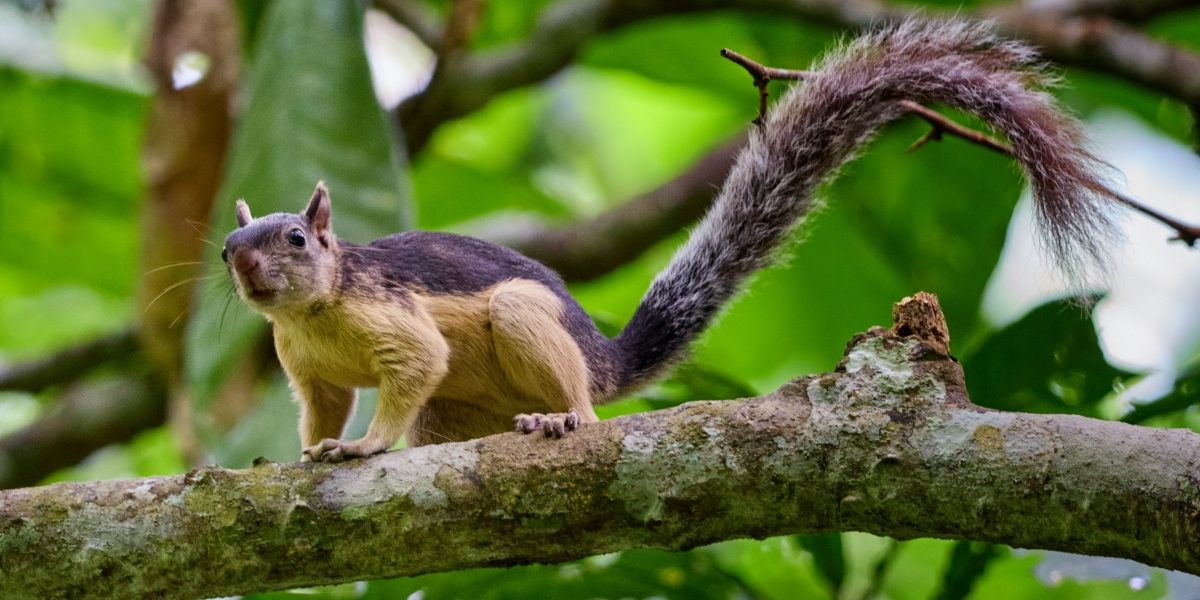Squirrels can be cute when they are outside, playing in the trees, but they can become problematic when they decide to invade your personal space. They may cause structural damage by chewing on wires and insulation, and potentially introduce unwelcome pests and bacteria.
If you’re dealing with a persistent squirrel issue and feel it may be helpful to seek professional assistance, consider reaching out to Prevent Pests. Below are 10 practical tips that could help you address a squirrel problem in your home effectively and humanely.
Common Signs of a Squirrel Infestation
Before taking action, it’s important to be aware of the signs that a squirrel infestation may have entered your home. Some common indicators include:
- Scratching and Scurrying Noises: Squirrels are typically active during the day, so if you hear noises coming from the attic or walls, particularly in the morning, it might suggest the presence of these rodents.
- Droppings: Squirrel droppings are similar in size and shape to those of rats. You may find them around entry points or in the attic.
- Damage to Structures: Squirrels have strong teeth and will chew through wood, insulation, and electrical wires. Look for signs of gnawing around rooflines, near vents, and other access points.
These early signs can help you identify the presence of squirrels and take action before significant damage occurs, as noted by 911 Home Helps.
The Dangers of Squirrel Infestations
Squirrels may cause a range of issues if they are allowed to stay in your home, including:
- Fire Hazards: Squirrels tend to chew on electrical wires, which could result in short circuits and, in some cases, pose fire risks.
- Structural Damage: Squirrels can gnaw on wooden beams, insulation, and drywall, which may compromise the structural integrity of your home.
- Health Risks: Squirrels may carry fleas, ticks, and mites, which could be transferred to humans or pets. Additionally, their droppings may carry bacteria that could pose health risks if not cleaned promptly.
How to Get Rid of Squirrels from Your Home
Seal Entry Points
Squirrels can find their way into your home through surprisingly small gaps. Conduct a thorough inspection of your house for any open areas in the attic, chimneys, windows, or doors that could allow squirrels to enter. Seal these openings using metal mesh, caulk, or hardware cloth. Avoid using wood or plastic, as squirrels are capable of chewing through them.
Trim Overhanging Trees and Branches
Squirrels can often reach your roof by jumping from nearby trees. By trimming overhanging branches above your roof or within 8 to 10 feet of it, you can reduce their access to your home.
Install Squirrel-Proof Chimney Caps
Squirrels often use the chimney as a point of entry. Installing a metal cap at the top of your chimney can be an effective way to block their access. Ensure it is securely attached to withstand any attempts by squirrels to tamper with it.
Use Squirrel Repellents
There are natural and chemical squirrel repellents available that emit odors and tastes that squirrels find unpleasant. These repellents can be applied around attics and roofs, where squirrels frequently enter. Some natural options include predator urine and peppermint or cinnamon essential oils.
Set Up Squirrel Traps
Humane squirrel traps can be used to capture squirrels without causing harm. Once trapped, relocate the animals at least 10 miles away to reduce the chances of them returning. Set traps in areas with visible signs of squirrel activity, such as the attic or garden.
Secure Your Bird Feeders
Squirrels are often attracted to bird feeders. To keep them away, use squirrel-proof feeders equipped with weight-sensitive mechanisms or hang them from poles with baffles that block access to the seeds. Be sure to clean up any spilled birdseed promptly.
Remove Potential Food Sources
Squirrels are often attracted to food sources near your home, such as fallen fruit, nuts, or pet food. Regularly clean your yard to remove any potential attractants. Secure your garbage cans with tight-fitting lids and avoid leaving pet food outdoors for extended periods.
Install Metal Flashing Around Trees
To discourage squirrels from climbing trees near your home, consider wrapping metal flashing around the trunks. The slippery surface will make it difficult for squirrels to ascend, thus reducing their chances of reaching your roof.
Use Noise and Light Deterrents
Squirrels are often deterred by loud noises and bright lights. Installing motion-activated lights or ultrasonic sound devices in areas with high squirrel activity, such as your attic, may help drive them away.
Consult a Professional Pest Exterminator
If you’re unable to manage the squirrel situation on your own, it might be helpful to contact a wildlife control professional. These pest exterminators can humanely remove or exclude squirrels, assess your home for potential entry points, and suggest preventive measures to avoid future infestations.
How to Prevent Squirrels from Returning?
Once you’ve successfully removed squirrels from your home, it’s important to take steps to prevent them from coming back. Here are a few preventive measures you can implement:
- Regular Home Inspections: Periodically inspect your home for any new entry points or signs of squirrel activity, such as gnaw marks or nesting material.
- Maintain a Clean Yard: Keep your yard tidy by removing debris, fallen fruit, and other food sources that may attract squirrels.
- Properly Store Food: If you have a garden, harvest fruits and vegetables promptly to avoid attracting squirrels to your property.
- Secure Gardens and Compost Bins: Protect your garden by using fencing or mesh, and ensure that compost bins are securely covered to prevent squirrels from accessing them.
Why Professional Pest Control Services May Be Necessary
In some cases, no matter how much effort is put into preventing squirrels, they may continue to return. If your infestation problem persists, seeking help from a professional pest control service may provide a more thorough and lasting solution. Wildlife control experts, such as those from Panda Pest Control, will assess the level of your infestation, humanely remove the squirrels, and offer additional advice tailored to your home to prevent future issues.
Summary
Dealing with squirrels in your home can be frustrating, but with the right approach, you can remove them and reduce the likelihood of future infestations. By identifying and sealing entry points, removing attractants, and using humane deterrents, you can make your home less inviting to squirrels. Taking swift action can help protect your home from structural damage and reduce health and safety risks. If you’re struggling with persistent issues, reaching out for professional help may be the most effective way to ensure the problem is resolved. With these strategies, you can help keep squirrels at bay and restore peace to your home.
















